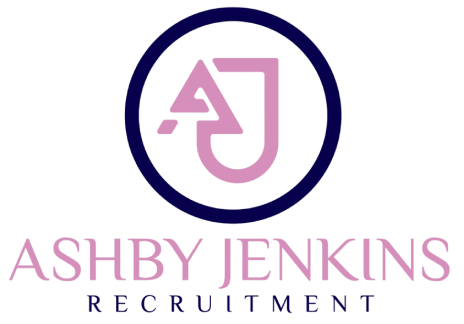Embracing diversity: unlocking the power of inclusive hiring
Ashby Jenkins Recruitment, a recruitment agency specialising in marketing jobs in the charity sector, work tirelessly to help a diverse pool of candidates secure marketing jobs in the charity sector. We have worked with numerous clients to enhance their hiring processes, ensuring they are diverse and inclusive. Now, we want to share a comprehensive guide to help you do the same.
Most organisations today understand the critical importance of equality, diversity, and inclusion (ED&I). An effective ED&I strategy benefits not only the organisation but also its employees. A diverse workforce and an inclusive environment are crucial for fostering innovation, empathy, and social cohesion.
The charity sector is already ahead of many other industries in embracing ED&I principles, and Ashby Jenkins Recruitment has always been ahead of other agencies in this regard. We were the first recruitment agency in the charity sector to introduce completely anonymised submission processes and to remove educational institutions’ names from CVs, helping to eliminate bias and promote social mobility. We also conducted the sector’s first-ever ED&I surveys in 2020 and 2021 to track progress and commitment to equality.
Comprehensive steps to eliminate bias and encourage diversity for marketing jobs in the charity sector
Educate and train your staff
Every organisation should have an ED&I policy that outlines its commitment to an inclusive and discrimination-free workplace. You can enhance this by offering tailored training on conscious and unconscious bias, as well as interview training to ensure fair and consistent candidate assessments.
Discuss ED&I from the outset
Before recruiting, engage with hiring managers about their team’s diversity and identify any gaps. Consider “positive action” to encourage applications from under-represented groups. Use equal opportunities monitoring forms to collect data, ensuring anonymity and optional participation.
Streamline job requirements
When crafting job descriptions, list only the essential skills and experience. Research shows men apply for jobs meeting 60% of the qualifications, whereas women apply only if they meet 100%. Highlight that some qualifications are “nice to have but not essential” to encourage broader applications.
Avoid specifying degrees or particular years of experience unless absolutely necessary, as this can be discriminatory. Use terms like “relevant” or “equivalent” levels of education, knowledge, or experience.
Be open-minded and flexible
Offer flexibility regarding working hours, patterns, locations, and job splits to attract a wider range of candidates. Consider candidates from outside your sector to bring fresh perspectives and ideas.
Always advertise the salary
Disclose the salary range in job advertisements. Avoid terms like “competitive” or “negotiable,” as they can be off-putting. Include information about employee benefits and perks to provide a comprehensive view of the role’s value.
Use inclusive and accessible language
Ensure job descriptions use inclusive and accessible language. Avoid gender-coded words and corporate jargon. Utilise tools like Gender Decoder and AI-based suggestions to optimise language neutrality and clarity.
Work with ED&I-committed recruitment partners
When working with recruitment agencies, ensure they are committed to inclusive hiring practices.
Anonymise application processes
Anonymise applications to reduce bias, while keeping forms straightforward to accommodate all candidates, including those who are neurodiverse or differently-abled.
Make reasonable adjustments
Always ask candidates if they need reasonable adjustments for the recruitment process or interviews. Possible accommodations include extending time limits, providing interview questions in advance, adjusting display settings for online assessments, or allowing a support person to be present during the interview. Avoid insisting on in-person interviews unless necessary, and ensure your hiring processes are as accessible and streamlined as possible.
Have diverse interview panels
Strive to create diverse interview panels. If this is challenging, it indicates areas needing improvement. Involve team members from other departments who will work with the new hire.
Ensure a fair and inclusive interview process
Ensure fairness and objectivity in assessing candidates by conducting structured interviews with a clear scoring system and evaluating all candidates using the same criteria. Use valid assessments to measure competency and ensure all questions are relevant to the role.
Challenge bias
During the selection process, assess each candidate against the same criteria and challenge any conscious or unconscious bias.
About the Author
Olivia is a Marketing and Communications Recruiter at Ashby Jenkins Recruitment, we specialise in charity sector recruitment and are experts in helping candidates secure marketing jobs in the charity sector. If you would like to get in contact with her, please email [email protected].

